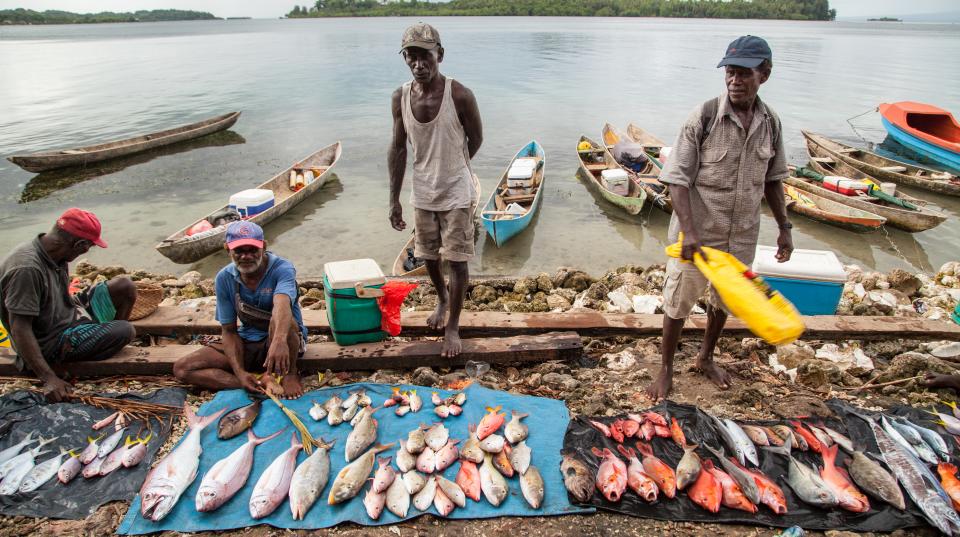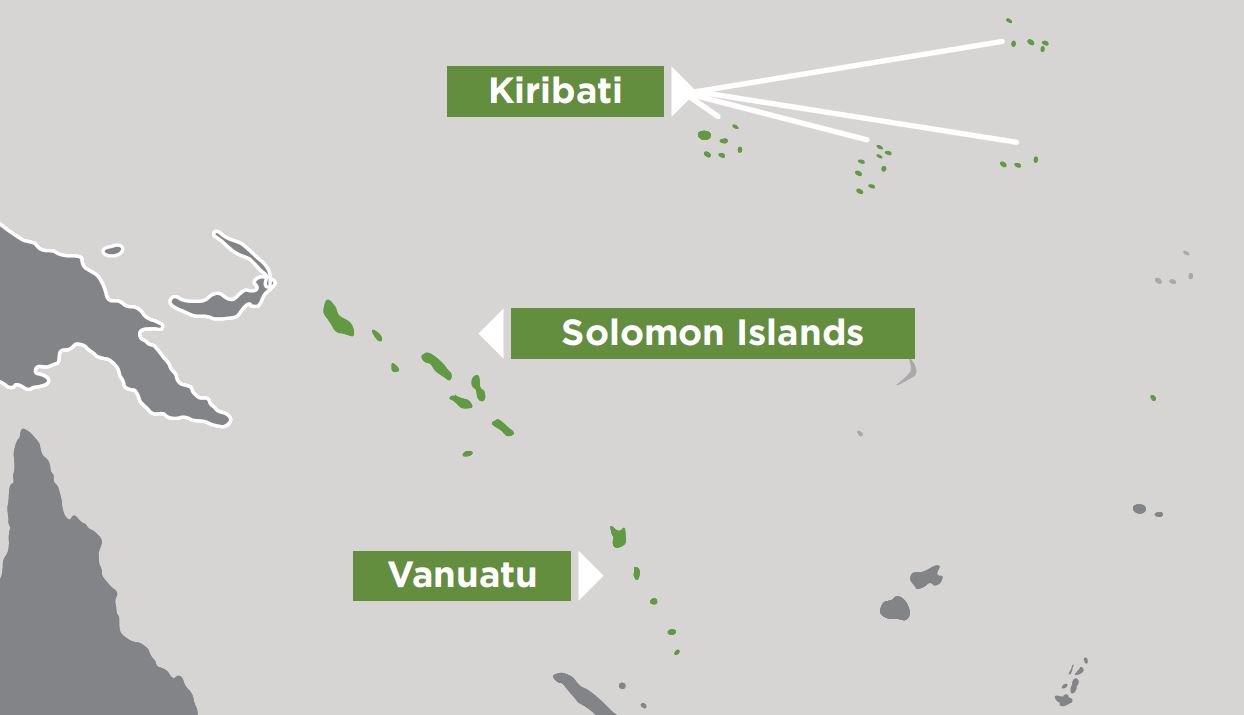Overview
This project analysed Pacific agri-food systems to characterise Pacific agri-food systems, recommend actions to improve local food environments and support national policies to promote healthier, more diverse diets for people.
The Pacific food system is failing to provide the people of the region with nutritious food. The many paradoxes of apparently abundant fish, vegetables, and root crops with poor public health outcomes present a significant challenge for policymakers.
Per capita, agricultural and coastal fisheries production is declining, and imports of nutritionally unrewarding food are increasing. These trends, along with external drivers including urbanisation, migration, and globalised food trade, conflate to accelerate the nutrition transition in the region. As a consequence, Pacific island countries are greatly affected by the triple burden of malnutrition—the coexistence of undernutrition, nutrient deficiencies, and obesity.
The project aimed to bring together communities and provincial and national line agencies to recommend actions to improve local food environments and support national policies to promote healthier, more diverse diets.
Project outcomes
- Completed integrated analyses of dimensions of the agri-food system at regional and national scales
- Analysed policy coherence across food system sectors and identified opportunities to strengthen policy in focal countries
- Characterised informal markets and prioritised actions that enhanced nutritional outcomes from local food environments in the Solomon Islands
- Developed diagnostic tools to improve policy interventions in national agri-food systems and improved metrics for reporting status and progress against national, regional and global targets.






